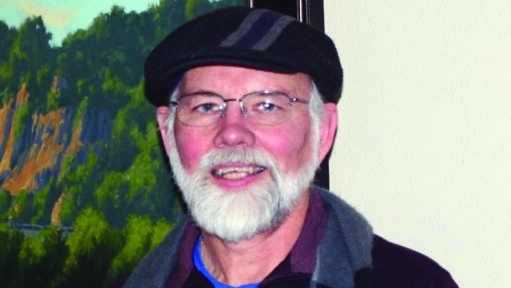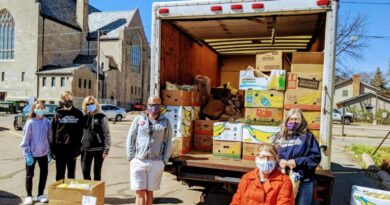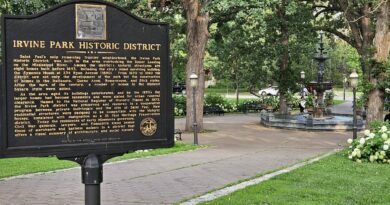Barbershops and Stories
Building an Antiracist Community
When barbers first started cutting hair at 925 West 7th St., the internet and search engines were decades away from being imagined, much less existing. But, Google is what brought me to my first haircut at the 7th Street Barbers where, among other things, I learned that hair had been cut in this spot since 1893. Looking at the wall with its many history-laden pictures, it was clear that this barber shop was full of stories. Among the more contemporary stories that I learned was that one of the co-owners, Pete Klein, and his son Wyatt went to the same barber school and had the same woman as their instructor. I left with an overdue and, given the limitations of what Wyatt had to work with, a fine haircut. No less important, thanks to the stories shared, I had a new sense of connection to this history laden spot on West 7th St.
Every season is a good season for sharing stories, but this time of the year when days are short and nights are long is a particularly inviting time for story. A challenge for Christian clergy at this time of the year is how to give a barbershop connection to a story told and retold so often that even those who never come close to a church likely know something about the birth of Jesus. For many years our neighbor had a plastic baby Jesus that he put on top of his porch, sometime in early December. It sat there all by itself, through the coldest of nights, with only a small light to keep the plastic Jesus warm. I sometimes thought of that plastic Jesus when I had to prepare a sermon for Christmas Eve. That Jesus looked so alone and isolated, which is how I imagine too many people end up feeling during the holidays. But, the actual birth story is anything but one of isolation, but rather of expanding relationships. My challenge as a preacher was inviting folks into the story so they felt like they were sitting in a barber’s chair on West 7th St, discovering again or for the first time a relational connection to the birth of this child.
At their best, stories can help bridge divides and make connections, even with people with whom it would seem we have little in common. When my wife and I were returning this summer from a trip out West, we ventured off of the interstate, taking instead two-lane roads through parts of rural Nebraska. At one particularly lonely looking intersection we came across a mixed restaurant and convenience store. The sign by the entrance said, ‘bathroom for patrons only”, which was our primary need. I opted to purchase one of the “best malts in Nebraska”. It was when the clerk or possibly owner went into the backroom to make the malt that I noticed what could only be described as a shrine to none other than Trump. There were a half dozen pictures, small flags and a bill stating “In Trump We Trust” all neatly displayed in homage to the former president. I have thought of that woman and her shrine many times since. The only thing that might bridge the divide between her worldview and mine is a story in which we discover some common links in our lives.
At the Overcoming Racism Conference held at Metropolitan State University this past November, Kao Kalia Yang told a story about her immigrant father who found work in a manufacturing plant in Minnesota. The plant exploited new immigrants. Many of them, like Kalia’s dad, had made major sacrifices in their lives in order for their children to have a better life. When the employees protested the working conditions, the plant manager threatened to fire them and then added, “think of your children”. As Kalia’s dad noted that is the only thing they had been thinking about, and it was why they protested. If the plant manager had taken an interest in her father’s story and that of other immigrants working for him, it is likely he would have come away with a new outlook and new appreciation for his employees.
Barbershops are great places for stories, but they can happen anywhere that hearts and spirits are open to discovering the deeper connections we all share.
Tim Johnson is a retired pastor for United Church of Christ.




